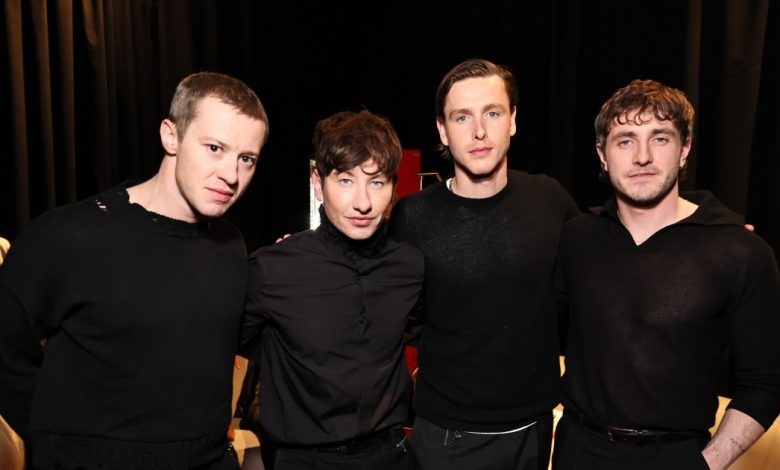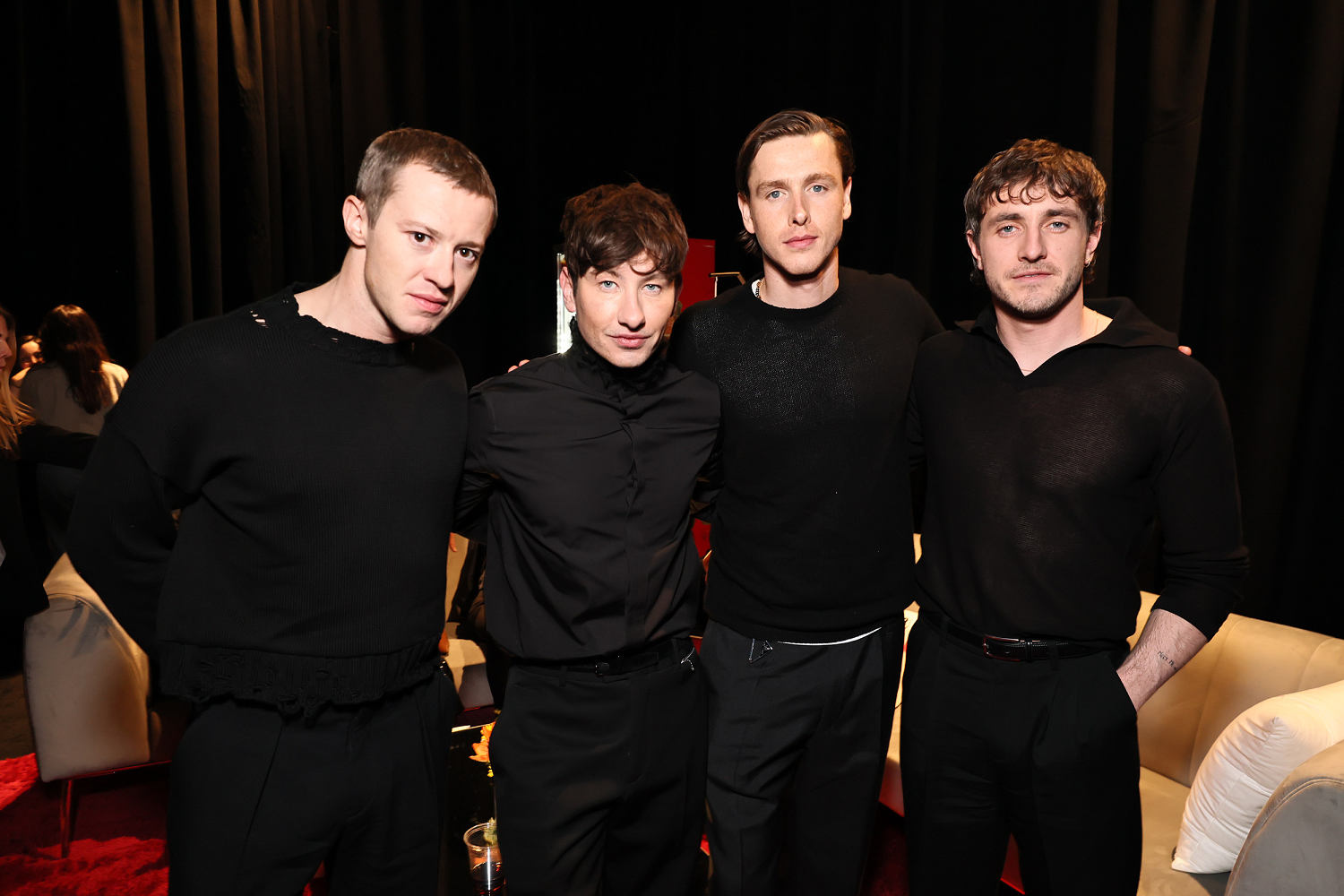Paul Mescal, Barry Keoghan, Joseph Quinn and Harris Dickinson to star in 4 biopics of The Beatles


LAS VEGAS — Hollywood studio executives are making their case for theatergoing with a little help from John Lennon, Paul McCartney, George Harrison and Ringo Starr — along with the newly announced stars set to play them.
Sony Pictures kicked off the annual CinemaCon convention and trade show in Las Vegas on Monday by touting its four upcoming biopics, each told from the perspective of a member of The Beatles.
At their presentation on the main stage at Caesar’s Palace, the studio confirmed and announced the long-rumored leads for each film: Paul Mescal as McCartney, Joseph Quinn as Harrison, Barry Keoghan as Starr, and Harris Dickinson as Lennon.
Director Sam Mendes said all four films will premiere in April 2028, calling it the “first binge-able theatrical experience.”
“I’ve been trying to make a story about The Beatles for years,” Mendes said.
The convention draws thousands of movie theater employees from around the world each year. All the major Hollywood studios make big presentations packed with film clips, trailers, and stars to make the case that their upcoming slate will lure audiences to theaters.
Sony also brought out Oscar-winning filmmaker Danny Boyle to debut the new trailer for “28 Years Later,” his long-awaited zombie apocalypse sequel to “28 Days Later,” which will hit theaters in June, and the team behind “Spider-Man: Beyond the Spider-Verse” to tease their third film in the Spider-Verse trilogy.
CEO Tom Rothman encouraged movie theater owners to get creative with weekday discounts, and Sony executive Adam Bergerman advocated keeping films in cinemas for longer.
The convention comes fresh off an Oscars rallying cry for seeing movies in theaters.
Although a fuller release schedule is expected this year compared to 2024’s depleted calendar thanks to dual historic strikes, Hollywood marked the first quarter of 2025 with a sizable box office deficit. Sales are down 11% from the same point in 2024, and nearly 40% from 2019, according to media analytics company Comscore.




